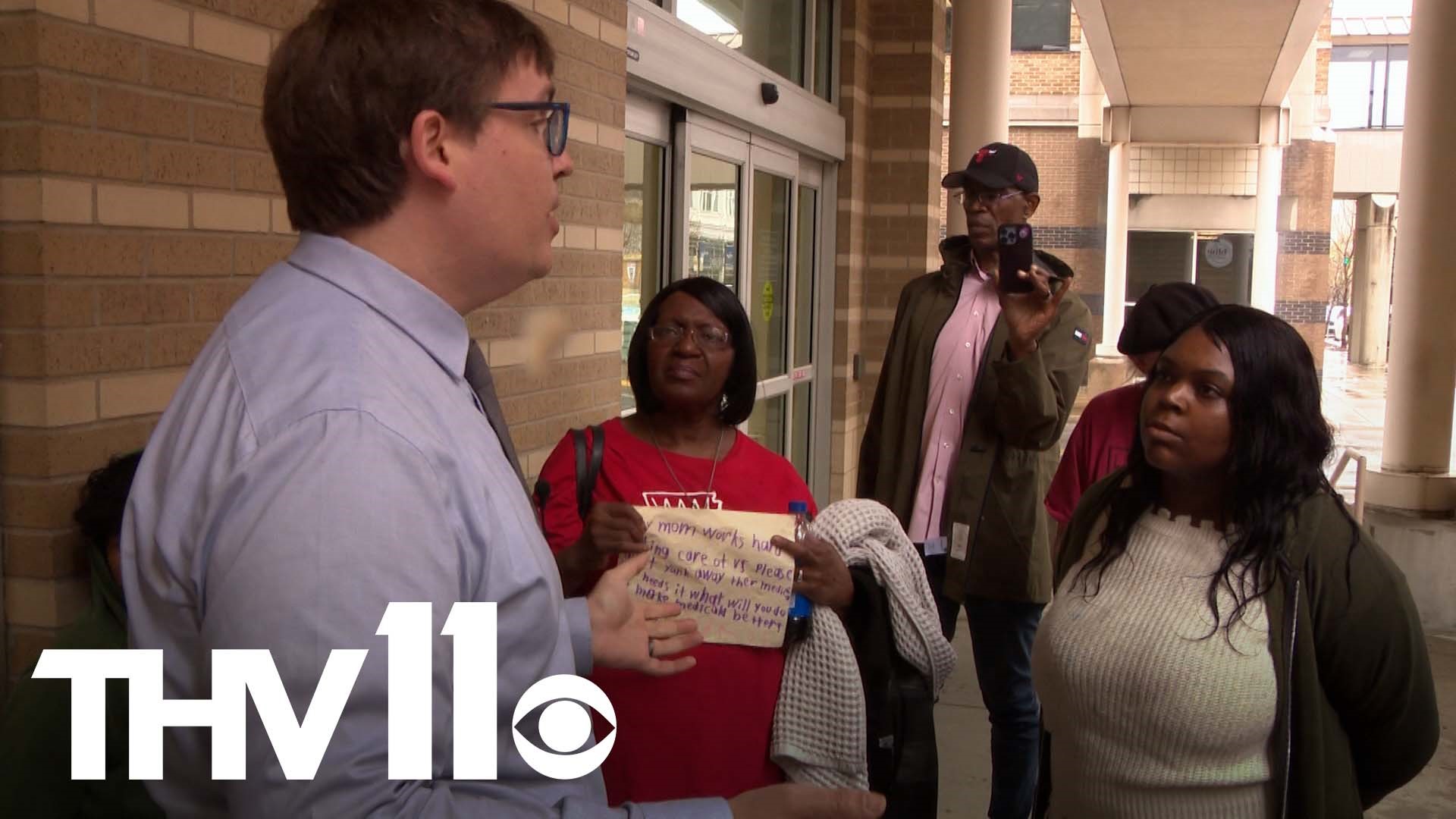LITTLE ROCK, Ark. — In February, a group from Arkansas Community Organizations talked with the Department of Human Services and outlined around a dozen ways the department can improve the state's Medicaid program.
Nearly a month later, those families tell us the department's promise to respond has fallen through.
Nearly a dozen people gathered outside DHS's administrative office in downtown Little Rock to express their frustration.
Jasmine James, who receives Medicaid along with her two kids, is one of the people demanding answers.
"A young teenage mother needs more assistance," James said.
She is in between jobs, so when her children are sick, the program makes a world of a difference.
"My baby has Eczema," James said. "She has Eczema cream that she needs because her skin is getting eaten up and eczema cream is very expensive."
Valencia White is a mother to two boys and is also receiving Medicaid.
She joined the group Friday requesting DHS Secretary Kristi Putnam to respond to the recommendations the organization made during a February meeting with the department.
"Talking about expanding health care, not just for the health, for the vision, the dental and adding mental," White said.
She's also advocating for a better understanding of what type of Medicaid each recipient qualifies for, an easier application process and a revision of the current work requirement.
"People can't work," White said. "Why are we having to have people work in order to have health care?"
Gavin Lesnick with DHS addressed the group and answered our questions about why families haven't heard from the department since February.
"It does take time," Lesnick said. "Medicaid is a big program. There are a lot of parts to it. We want to do our due diligence and look into those issues and make sure we're responding accurately."
Although Lesnick couldn't provide a specific timeline on when DHS will respond to the recommendations from the community, White plans to continue to push for change for all Arkansans on Medicaid.
"I'm speaking for the ones that can't, the ones that won't and the ones that aren't going to do anything," White said.
Arkansas Community Organizations is also asking for a full year, instead of six months, for re-enrollment in the Medicaid program after the public health emergency ends on April 1.
Arkansas Department of Human Services told us the six-month timeline is set by Arkansas law and not them.

